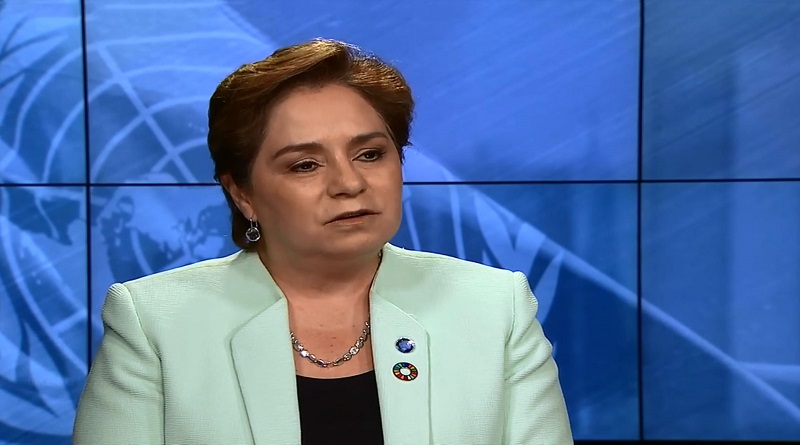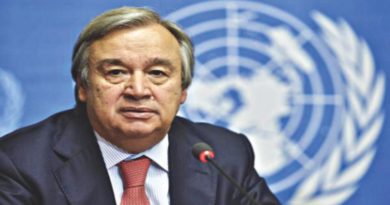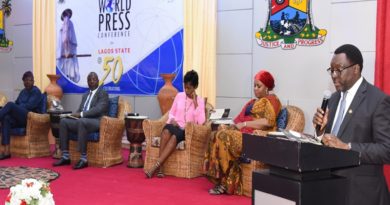Italy workshop inspires action for climate empowerment
Success tackling climate change will require an informed public inspired to take action, delegates from Europe and the Mediterranean region reaffirmed at a workshop in Italy held to increase public awareness, engagement and cooperation to safeguard the planet.
Organized by UN Climate Change with the support of the Government of Italy and in cooperation with the Italian Ministry for Environment, Land and Sea, delegates in La Spezia spent three days taking stock, sharing experiences and brainstorming on how best to inspire Action for Climate Empowerment (ACE) – covering education, training, public awareness, public participation, public access to information and international cooperation on climate action.
“Urgency is the key word. Climate change advances at a pace that no longer allows any delay, any procrastination,” said Francesco La Camera, Director General, Ministry for the Environment, Land and Sea, Italy, at a public session held in La Spezia municipal hall.
Countries recognized the importance of ACE when they crafted the UN Framework Convention on Climate Change, agreeing to name national focal points and set ACE strategies. When countries adopted the Paris Agreement in 2015, the importance and approach of ACE was laid out in its Article 12.
“It is essential that Parties begin implementing the Paris Agreement; and more than this, as we need a long-term vision, alongside government administrations, it is essential to build awareness at all levels of civil society,” said Mr. La Camera.
The La Spezia workshop on 2-4 October provided a forum for ACE national focal points from governments in Europe and the Mediterranean region, representatives of the Presidency of the upcoming UN Climate Conference (COP24) in Katowice, Poland, representatives of the Presidency of the Council of the European Union (Austria) and EU Commission, and non-Party stakeholders, including youth organizations and young people, to share their experiences, good practices and lessons learned on the six elements of ACE and contributed to strengthening the skills and capacities of national focal points.
“Parties recognize that success tackling climate change will require an informed public, inspired to act,” said Niclas Svenningsen, Manager, Global Climate Action at UN Climate Change. “ACE is critical, spanning sectors, age, regions to spur real action on the ground.
“This kind of regional workshop is a useful way to advance experts’ capacities and the ACE work under the UN Climate Change process,” said Mr. Svenningsen.
In three roundtable sessions, delegates described a mixed level of activity on ACE, with some countries having prepared ACE strategies, aided by published guidelines, while others have yet to name a focal point. Participants saw value in government departments – such as environment and education ministries – working more closely together, and connecting with public and private sector entities, such as NGOs and private companies, to find common goals and complementary strengths.
All agreed that ACE work is taking place in diverse areas, and a great deal of useful communication and training materials, and experiences, already exist from which to draw. The first step is to take stock and then adapt and employ. Delegates reiterated the need to: include ACE in nationally determined contributions under the Paris Agreement, national adaptation plans, long-term low greenhouse gas emission development strategies and climate policies; strengthen the capacities of ACE focal points; promote cooperation among Ministries of Environment and Education; and foster partnerships to scale up ACE implementation among national governments, cities, the private sector, universities, schools, and youth organizations.
Francesca Santoro, of the Intergovernmental Oceanographic Commission, UNESCO, described work on “Ocean literacy and ocean science communication activities,” raising awareness about the critical life-sustaining role oceans play and the threats faced from climate change and pollution.
Irene Fisco from the Center for Development Information and Education described the “SAME World Project,” which has produced a practical education and training compendium and education site online.
Vienna Eleuteri, President, Eulabor Institute, which helped organize the workshop, connected participants with the Fondazione Manarola Cinqueterre, to give them a first-hand look at climate change adaptation activities. Fondazione Manarola Cinqueterre is working to rehabilitate the steep vine terraces above the village of Manarola, threatened by land-slides triggered by torrential rains.
At a public event opened by La Spezia Mayor Pierluigi Peracchini, representatives of the Italian ministry of education, companies, government agencies and NGOs described the threats posed by climate change and what is being done in response, before an audience of about 130 high school students.
When Parties meet in Katowice, Poland, 2-14 December, they will work to agree the guidelines for implementation of the Paris Agreement. In their negotiating session this past May in Bonn, Parties agreed to a draft decision that will form the ACE part of those guidelines. Also at COP24, two days will be dedicated to showcase good practices and celebrate education and youth empowerment: Young and Future Generations Day, 6 December, and Education Day, 13 December.




